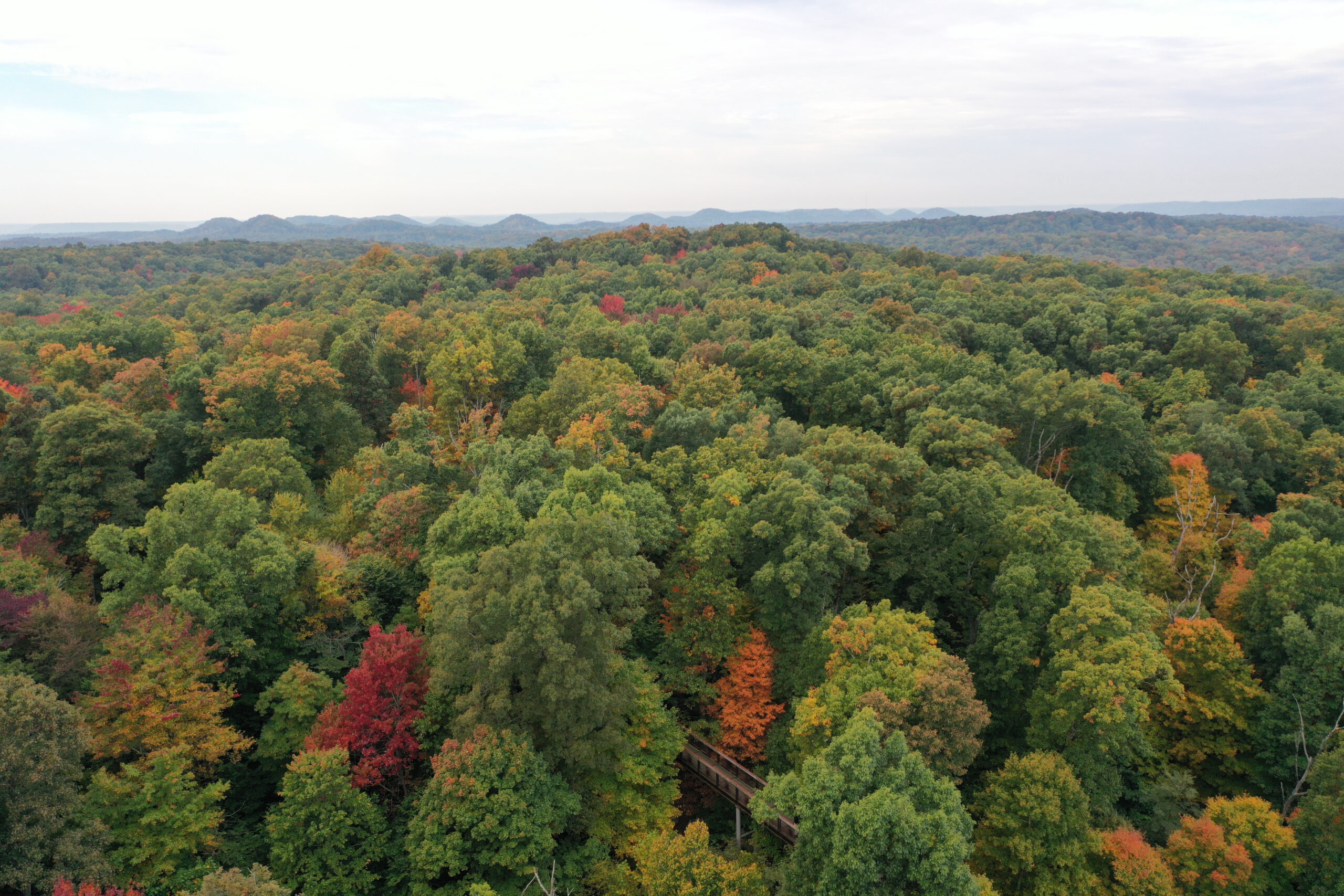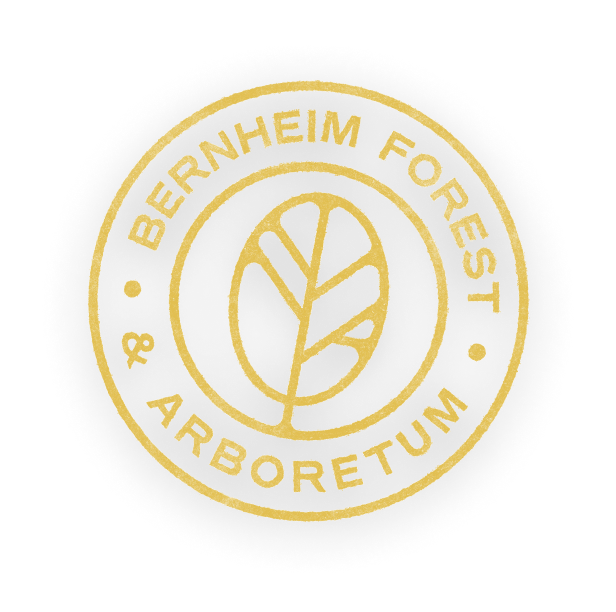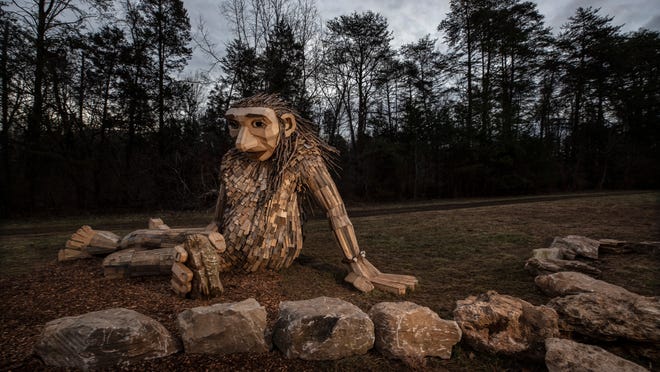By Bernheim
Source: Courier-Journal
By Paul Capiello, Yew Dell Gardens
November 6, 2020
When you spend as much time as I do in the company of professional plant dweebs, the constant debate about a particular plant’s relative worth to the planet is the constant topic du jour. And as you might guess, I’m never shy about mixing it up with the botanically minded. It keeps the mind from going to mush, and it’s also a great way to harvest others’ opinions for upcoming columns.
Sometimes my wife wonders if we’ll ever just go to a normal cocktail party and talk about normal things with normal people.
Hmm. Interesting thought.
But even the willing and much-practiced professional plant debater in me sometimes yearns for a chance to just be with the trees. No debates … just trees. Add the stresses of the coronavirus pandemic, the election season and Kroger still being out of stock on my favorite tea brand, and a quiet walk among amazing trees seems to be in order.
So here are a few of my favorite places around town for an arboricultural tonic.
Bernheim Arboretum and Research Forest
Thousands of acres of trees. What more can I say? And while the arboretum offers a wide diversity of native and exotic tree species, my favorite way to enjoy Bernheim’s trees is to hit the hiking trails or gravel fire roads. Beeches (Fagus), oaks (Quercus), maples (Acer), sycamores (Platanus), black gums (Nyssa) … the list is quite long. Bring a guide book or a tree geek friend.
Cave Hill Cemetery

Talk about a no-brainer. If you’ve never been before, shame on you. This is one of the great American cemetery tree collections. Sure, Cave Hill is the resting place of Col. Sanders and Muhammad Ali among other Louisville dignitaries, but it’s also home to a spectacular tree collection. You can start at either entrance and go in any direction, but no matter where you go, be sure to find the giant ginkgo (Ginkgo biloba). The biggest I’ve ever seen — a male tree that some years ago apparently got lonely and grew a female branch.
Clark State Forest
For our friends on the Sunny Side, Yew Dell’s nursery and greenhouse manager, Jacob Stidham, recommends this little known (at least to Louisvillians) gem. Some 24,000-acres of mostly woodlands offer miles of walking trails, excellent spring wildflowers and, of course, lots of trees. One of the country’s earliest experimental forests, it’s located just north of Henryville, Indiana.
The Parklands of Floyds Fork
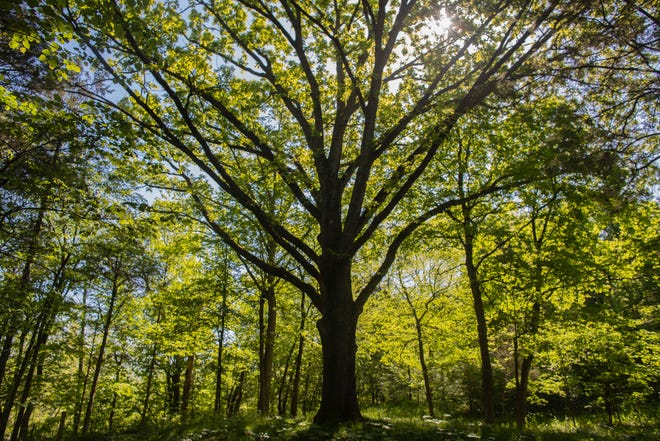
While the Parklands of Floyds Fork is a gem from stem to stern, the Moss Gibbs Woodland Garden in Broad Run Park is my favorite. Sure there are acres of spring wildflowers, but it’s the trees that make the trip for me. And there’s one very special white oak (Quercus alba) that makes the entire trip worth it. I’ll let you find that one for yourself. Can’t miss it!
Yew Dell Botanical Gardens

While the woodland trails have a few mammoth old red cedars (Juniperus virginiana) and shagbark hickories (Carya ovata) the cultivated grounds are where you’ll see the most. From early spring magnolias (Magnolia) to endangered ironwoods (Parrotia), magnificent beeches (Fagus) and, of course, dogwoods (Cornus), Yew Dell boasts the most diverse plant collection in the region. The endless gardens and historic architecture are bonuses.
Seneca Gardens
Over the last 30+ years, this residential neighborhood has been turned into a first-rate arboretum by longtime resident Mike Hayman. The variety is endless and ranges from big old mature oaks to rare and unique understory specimens.
Whitehall Mansion

Tucked away on the south side of Lexington Road, this is a great spot for a tree walk. Yes, the herbaceous borders and fernery are outstanding in their own right. But for a modest-sized site, there is tremendous tree diversity to be enjoyed.
For Louisville Metro owned properties, Senior Landscape Architect and uber native tree guy, John Swintosky, recommends the following. Most offer large, mature specimens of a variety of oaks (Quercus), buckeyes (Aesculus), bald cypress (Taxodium), lindens (Tillia) and more.
Central Park
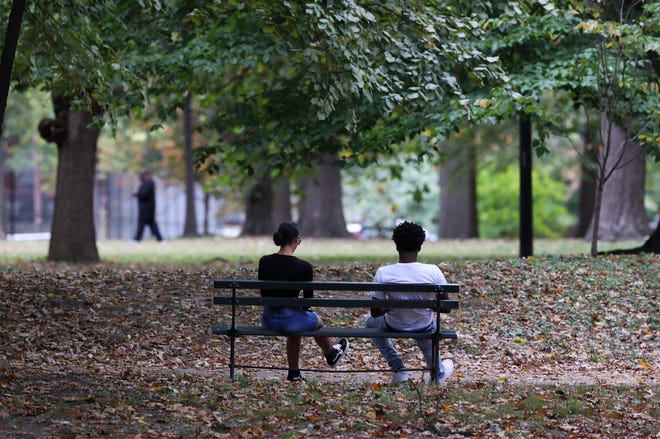
Visit this 17-acre urban park located between 4th and 6th streets on Magnolia Avenue. A wonderful green oasis in the heart of the city with the best collection of overcup oaks (Quercus lyrata) anywhere in the parks. Go check out the acorns.
Seneca Park

Most people go to Seneca Park for a bit of tennis, a soccer game, a little softball or to run/walk the loop path. But the next time you head there, be sure to look up.
Shawnee Park

Take a walk or a ride around the loop to enjoy some gigantic old trees, some specimens actually remaining from Fredrick Law Olmsted’s original plans. Big old oaks and recent replanting of the original pinetum (collection of needled evergreens).
Swintosky’s last suggestion
if you’re not up for a tree walk, why not a great tree drive. The original Olmsted designed parkways (Eastern, Southern, Algonquin, Southwestern and Northwestern) are mostly lined with oak (Quercus) species along the roadway, with a varied collection of other native tree species in the second row.
